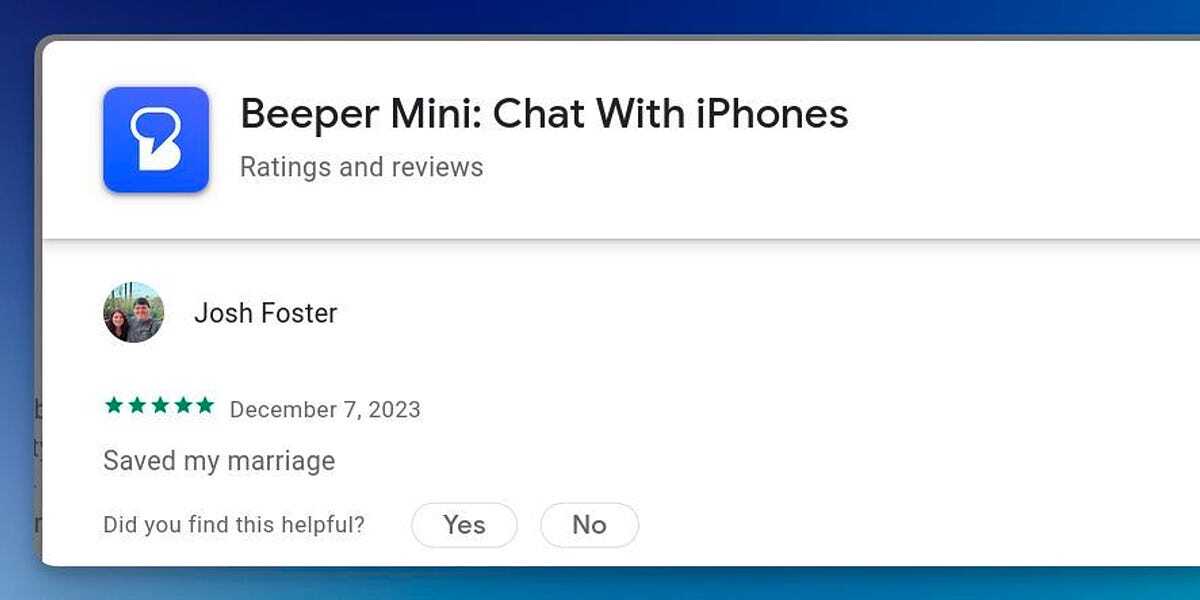- cross-posted to:
- [email protected]
- [email protected]
- cross-posted to:
- [email protected]
- [email protected]
We’ve created an updated version of Beeper Mini that fixes an issue that caused messages not to be sent or received. We even added in a few new feature improvements: chats now open at the last unread message, and we polished the video player a bit!



They claim this one talks to Apple’s servers directly without proxy and therefore does E2EE.
See https://blog.beeper.com/p/how-beeper-mini-works
They do claim to use a custom-built proxy for push notifications (Apple’s push notifications obviously won’t work on Android) but that’s a helluvalot less critical than a message content proxy.
Given their previous behaviour, I’ll only believe that when an independent security researcher confirms that the app’s code actually implements the iMessage protocol with E2EE as they claim.
There was a very recent project that reversed enginered iMessage which I assume they are using as reference.
If you’re talking about that one by the high school student, they actually bought that from him.
In terms of helluvalot less critical - is it really though? Remember that the app on your phone is also witten by them, closed source and does whatever they want with your clear-text messages. If the trustworthyness of a messaging vendor is part of the critical-ness question, e2e encryption does not add anything: Either you trust them and could also do so when they process your message on their server, or your don’t and they could indeed spy on you on the proprietary client app.
End 2 end encryption is only a real benefit when the ends actually belong to the user, i.e. theres transparency about the ends being clean, which can only be shown for open source ends. If the ends are potentially compromised, there’s so security / privacy guarantee.